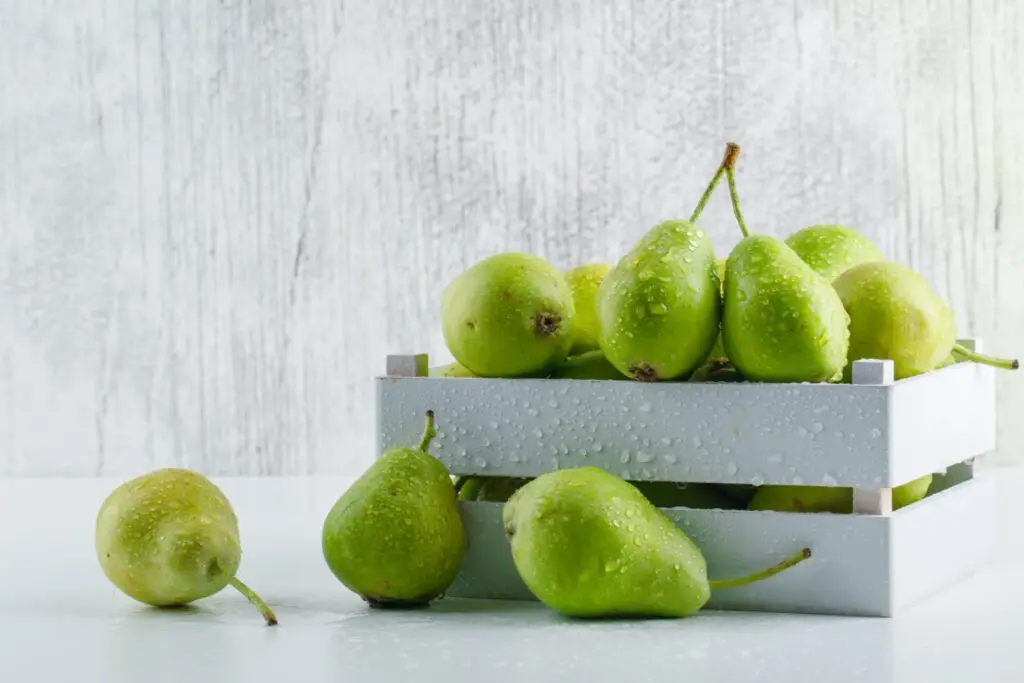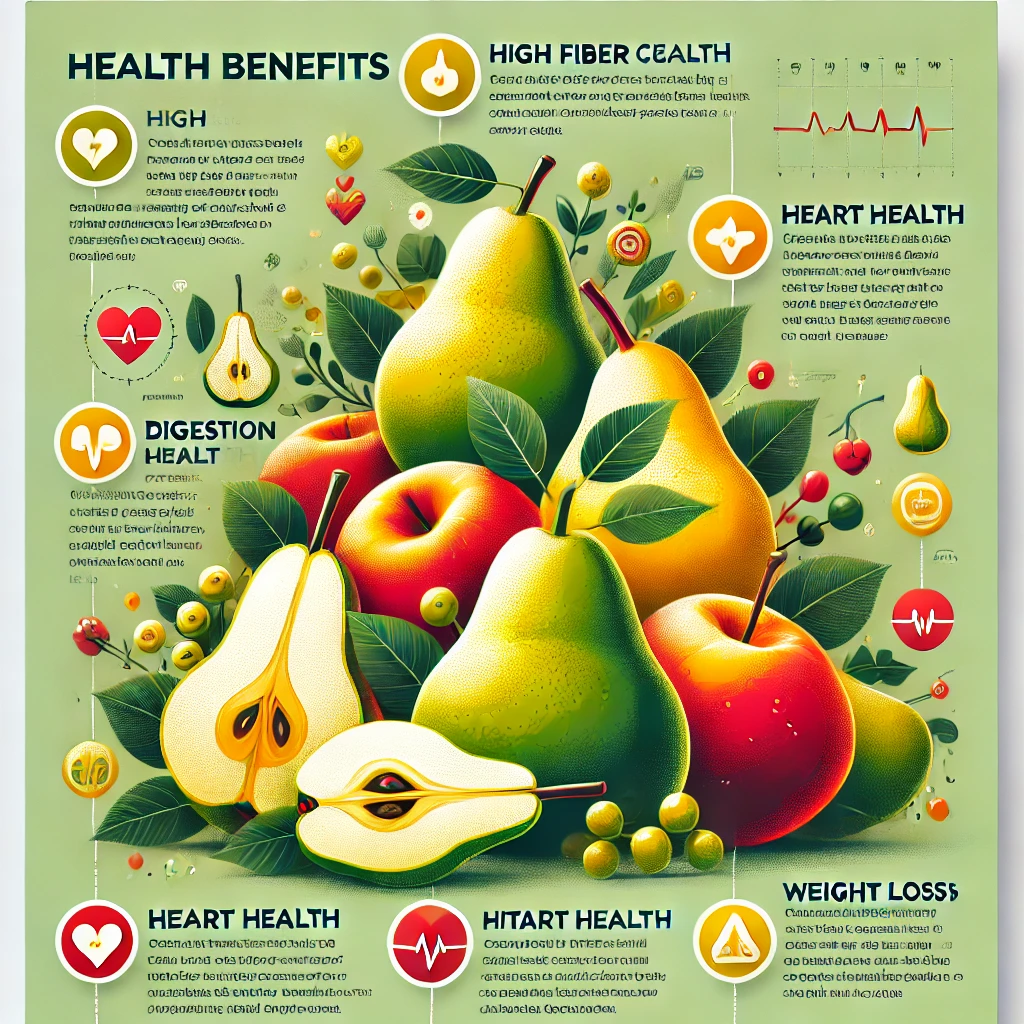Pears benefits for diabetes and gut health come from their low glycemic index, high fiber content, and natural compounds that support digestion and blood sugar balance.
Pears are a fiber-rich, low-glycemic fruit that play an important role in blood sugar control and digestive health. Packed with soluble fiber, antioxidants, and essential nutrients, pears are especially beneficial for people managing diabetes and gut-related issues.
This article explains pears benefits for diabetes and gut health, nutritional value, safe consumption, and precautions.
Table of Contents
Nutritional Value of Pears
Pears provide essential nutrients without causing sharp blood sugar spikes.
Key nutrients in pears:
- Dietary fiber (especially soluble fiber)
- Vitamin C – antioxidant support
- Vitamin K – blood health
- Potassium – blood pressure regulation
- Polyphenols – anti-inflammatory compounds
- Natural fructose – slow-digesting sugar
Because of this nutrient profile, pears are considered a diabetes-friendly and gut-friendly fruit.

Pears Benefits for Diabetes and Gut Health
One of the most important pears benefits for diabetes is their low glycemic index (GI) and high fiber content.
🩸 How pears help control blood sugar:
- Slow digestion of carbohydrates
- Prevent sudden blood sugar spikes
- Improve insulin sensitivity
- Reduce risk of type 2 diabetes complications
- Support healthy weight management
Studies show that whole fruits like pears are safer for diabetics than fruit juices.
Pears Benefits for Gut Health
Pears are excellent for digestive health due to their fiber and natural laxative effect.
🥗 Pears for gut health:
- Improve bowel regularity
- Prevent constipation
- Feed healthy gut bacteria (prebiotic effect)
- Reduce digestive inflammation
- Support colon health
The soluble fiber in pears forms a gel-like substance in the gut, promoting smoother digestion.

Are Pears Safe for Diabetics?
✔ Yes, pears are safe for diabetics when eaten in moderation.
Recommended intake:
- 1 medium pear per day
- Always eat whole fruit, not juice
- Pair with protein or nuts to slow sugar absorption
⚠️ Diabetics should monitor portion size and blood glucose response.
To understand how nutrients regulate blood sugar, read our guide on
what are vitamins and how they work.
Best Ways to Eat Pears
To maximize pears benefits for diabetes and gut health, follow these tips:
✔ Eat pears with skin (maximum fiber)
✔ Add sliced pears to salads
✔ Pair with yogurt or nuts
✔ Eat as a mid-meal snack
❌ Avoid canned pears with syrup
❌ Avoid pear juice (high sugar load)
You may also explore
kiwi benefits for digestion and immunity
for gut-friendly fruit options.
Can Pears Help with Constipation?
Yes. Pears contain sorbitol and soluble fiber, which naturally soften stools and improve bowel movements. They are often recommended for mild constipation in adults.
Side Effects & Precautions
While pears are generally safe, excessive intake may cause:
- Bloating or gas
- Loose stools (due to sorbitol)
- Blood sugar fluctuations if overeaten
⚠️ People with severe digestive disorders or diabetes complications should consult a healthcare professional.
According to the American Diabetes Association, fiber-rich fruits like pears can help improve blood sugar control when eaten in moderation.
Frequently Asked Questions (FAQs)
Are pears good for type 2 diabetes?
Yes. Pears have a low glycemic index and high fiber, making them suitable for type 2 diabetes.
Can diabetics eat pears daily?
Yes, 1 pear per day is generally safe.
Are pears good for IBS?
Pears may trigger symptoms in some IBS patients due to sorbitol. Moderation is advised.
Is pear skin healthy?
Yes. Most fiber and antioxidants are found in the skin.
Conclusion
Pears are a nutritious, fiber-rich fruit that support both blood sugar control and digestive health. The pears benefits for diabetes and gut health make them an excellent choice for people looking to manage diabetes naturally while improving gut function.
When eaten whole and in moderation, pears can be a valuable addition to a balanced diet.
⚠️ Medical Disclaimer
The information provided in this article is for educational and informational purposes only and should not be considered medical advice. Pears benefits for diabetes and gut health are based on general nutrition research.
This content is not intended to diagnose, treat, cure, or prevent any disease. Always consult a qualified doctor or dietitian before making dietary changes, especially if you have diabetes, digestive disorders, or are taking medications.

